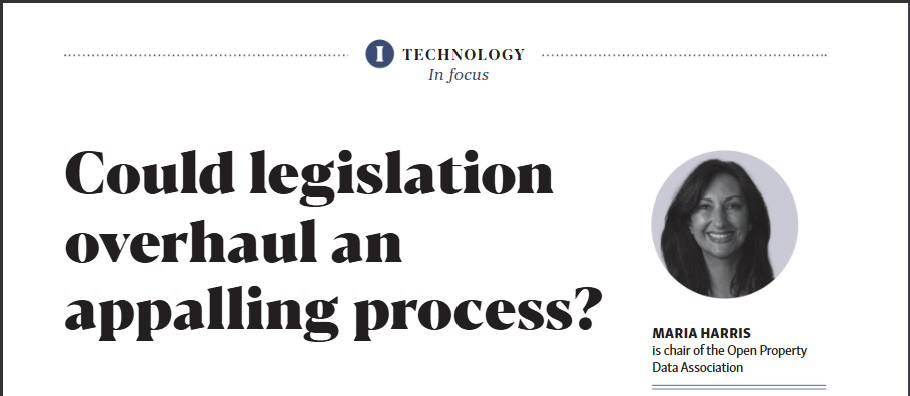Could new legislation overhaul appalling homebuying process?
This autumn has seen a whirlwind of speculation and commentary from the industry on the Budget. But the Budget is not the only show in town. In fact, a new bill, which has almost slipped under the radar for most, is offering the most hope for solving the country’s notoriously poor homebuying process.
The Data Use and Access Bill, sponsored by the Department for Science, Innovation and Technology, successfully had its first reading in the House of Lords on 23rd Oct. There was full cross-party support and agreement to bring the second reading on 19th November.
When passed, the bill will fundamentally change how customers engage with their data, making homebuying simpler. It revolutionises how we think about, access, and share data.
Why does this matter?
Currently we have one of the worst housing markets in the world. Buying a home should be enjoyable and a cause for celebration. Instead, the process leaves itself open to heartbreak, failure, and unacceptable levels of fraud.
Our appallingly sluggish homebuying process means that we average 22 weeks to completion, have a 30% failure rate and that 85% of buyers have a stressful experience. Staggeringly, the system is still largely paper-based, with less than one per cent of property data available in an interoperable digital format. In no other customer-facing retail industry would we tolerate such a poor consumer and user experience, and this for one of the most important and costly transaction in our lives.
It is clear that we urgently need reform. This can be achieved through digitisation, shareable property information, and improved data and technology standards.
The new bill should help deliver just that. It gives consumers the power to access their property and identity data and enables sharing of that data with authorised and accredited third parties within a secure trust framework. It puts the customer in control and means they only have to verify their property and identity data once. This has huge implications for the document-driven and manual check approach that we employ today.
The bill will give the Science and Technology Secretary and HM Treasury the power to introduce new smart data schemes through regulations which will specify the scope of a scheme. These regulations include:
· Who is required to provide data
· What data they are required to provide
· How and when they must provide that data
· How that data is secured and protected, including who authorises access to data.
Work on the first phase of the bill will include prioritising a trust framework for property. This will be based on our work at the Open Property Data Association (OPDA) on open data standards and led by the Department of Business & Trade and the Smart Data Council.




